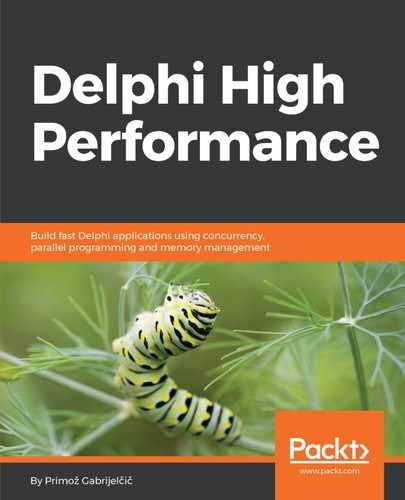Book Description
Build fast, scalable, and high performing applications with Delphi
About This Book
- Build efficient and concurrent applications in Delphi with focused examples
- Identify performance bottlenecks and apply the correct algorithm to increase the performance of applications.
- Delve into parallel programming and memory management to optimize your code
Who This Book Is For
This book is for Delphi developers who would like to build high performance applications with Delphi. Prior knowledge of Delphi is assumed.
What You Will Learn
- Find performance bottlenecks and easily mitigate them
- Discover different approaches to fix algorithms
- Understand parallel programming and work with various tools included with Delphi
- Master the RTL for code optimization
- Explore memory managers and their implementation
- Leverage external libraries to write better performing programs
In Detail
Delphi is a cross-platform Integrated Development Environment (IDE) that supports rapid application development for Microsoft Windows, Apple Mac OS X, Google Android, iOS, and now Linux with RAD Studio 10.2. This book will be your guide to build efficient high performance applications with Delphi.
The book begins by explaining how to find performance bottlenecks and apply the correct algorithm to fix them. It will teach you how to improve your algorithms before taking you through parallel programming. You'll then explore various tools to build highly concurrent applications.
After that, you'll delve into improving the performance of your code and master cross-platform RTL improvements. Finally, we'll go through memory management with Delphi and you'll see how to leverage several external libraries to write better performing programs.
By the end of the book, you'll have the knowledge to create high performance applications with Delphi.
Style and approach
This book will take a step-by-step approach with focused examples to teach you how to increase the performance of applications.
